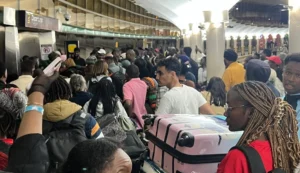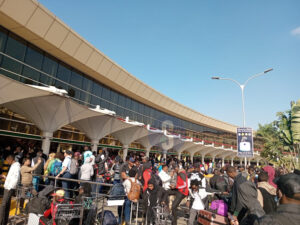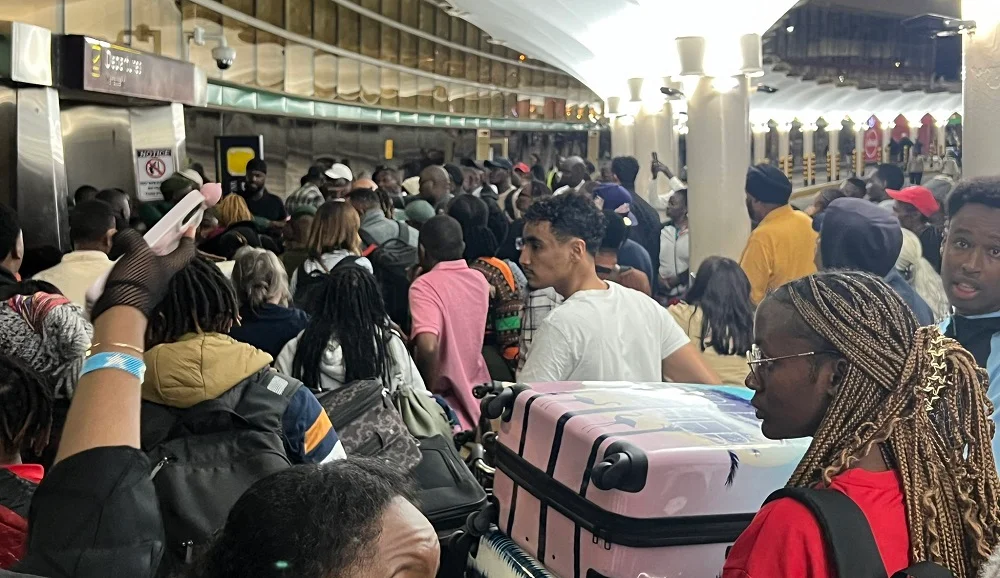The Jomo Kenyatta International Airport (JKIA) was thrown into disarray on September 10, 2024, as workers staged a protest against the imminent takeover by the Indian conglomerate, Adani. The company has been awarded a 30-year contract by the Kenyan government to operate the airport, sparking widespread concerns among the existing workforce about their job security.
The strike, which began early in the morning, saw workers block access to the airport’s terminals, causing significant disruptions to flights and passenger services. The protesters chanted slogans demanding the government reconsider its decision to hand over the airport’s management to a foreign company.

Fear of job losses was a primary motivator behind the strike. Many workers expressed concerns that Adani might prioritize its own interests and cut costs by reducing the workforce or outsourcing services. These fears were exacerbated by the company’s reputation for aggressive business practices in other countries.
The government, however, has defended its decision to partner with Adani, arguing that the company’s expertise in airport management will help modernize JKIA and improve its efficiency. Officials have also promised to safeguard the rights of existing workers and ensure that there are no job losses.
The strike has raised important questions about the future of JKIA and the role of foreign companies in Kenya’s economy. While the government may believe that partnering with Adani is the best way to improve the airport’s performance, many workers fear that the takeover will have negative consequences for their livelihoods.

As the situation continues to unfold, it remains to be seen whether the government will be able to address the concerns of the workers and ensure a smooth transition to Adani’s management. The outcome of this dispute could have far-reaching implications for the future of JKIA and the Kenyan aviation industry.


